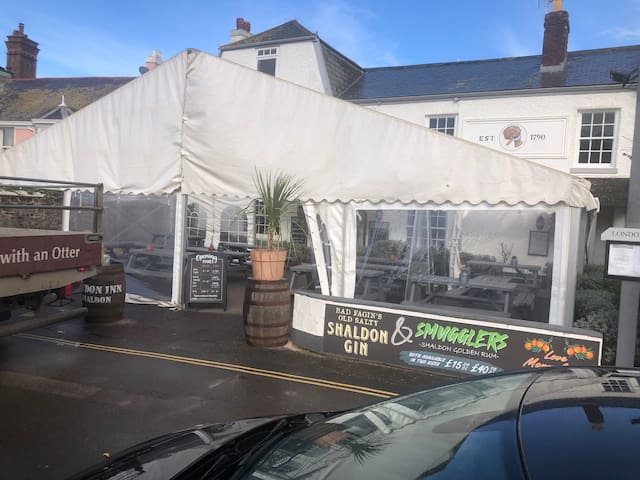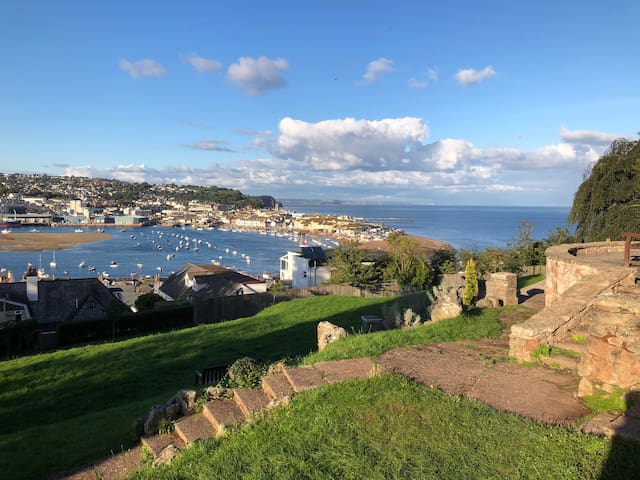Food scene
Some of our favourite eating places. There are many more, see our visitors book at the Mews.
The Clipper Cafe
26 StrandRight on the beach and a friendly family restaurant
This is a great place for lunch and has midweek entertainment
26 lokalinvånare rekommenderar
The London Inn
8 Church RdThis is a great place for lunch and has midweek entertainment
Sightseeing
Wonderful vies over Shaldon and beyond down the coast, great for dog walkers.
10 lokalinvånare rekommenderar
Homeyards Botanical Gardens
Torquay RoadWonderful vies over Shaldon and beyond down the coast, great for dog walkers.
A lovely and small zoo, within walking distance of the village. Many cute monkeys
48 lokalinvånare rekommenderar
Shaldon Wildlife Trust
Ness DriveA lovely and small zoo, within walking distance of the village. Many cute monkeys
This is a secret place accessed through the Smugglers tunnel near the zoo and the Ness hotel.
21 lokalinvånare rekommenderar
Ness Cove Beach
South West Coast PathThis is a secret place accessed through the Smugglers tunnel near the zoo and the Ness hotel.
City/town information
Shaldon is full of little Georgian (and older) houses tucked away in maze of tiny streets. The village developed in the sixteenth century as a fishing port, it had important shipbuilding yards and was later linked to the Newfoundland cod fisheries. Along the beach many large rowing skiffs will be found, this is a legacy of the days when large sailing vessels arrived at the estuary and had to be towed into the port. The fastest skiff to get to the boat claimed the prize for the towage.
47 lokalinvånare rekommenderar
Shaldon
Shaldon is full of little Georgian (and older) houses tucked away in maze of tiny streets. The village developed in the sixteenth century as a fishing port, it had important shipbuilding yards and was later linked to the Newfoundland cod fisheries. Along the beach many large rowing skiffs will be found, this is a legacy of the days when large sailing vessels arrived at the estuary and had to be towed into the port. The fastest skiff to get to the boat claimed the prize for the towage.


